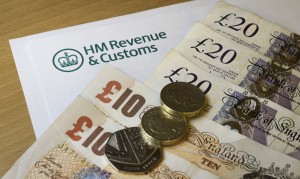 By Gary Smith
By Gary Smith
Binary options and the UK tax position
- Do proceeds from binary options trading attract Income Tax and/or Capital Gains Tax liability?
- Should you declare income from your binary option trades on your tax return?
These and other questions are of concern to novice and experienced traders alike – and we want to help you answer them.
Binaryoptions.co.uk is committed to providing our readers with a definitive and up-to-date picture of binary options trading in the UK. Being clued up on tax is part of this, which is why we’ve made direct enquiries with HMRC to bring you this guide to binary options and UK tax, which can then be used to help you make your own assessment of your trading activity. Links to relevant official guidelines are also included.
Regulation of binary options in the UK, has moved from the UK Gambling Commission, to the Financial Conduct Authority as of 2018. This change is significant, as it may indicate a move from viewing binaries as gambling, into more mainstream financial income. For the current tax year, the advice below remains accurate.
Tax Free Brokers in the UK
Tax Basics
 HMRC looks at all relevant circumstances to make decisions on tax liability. Here, we’ll outline the position on how the tax authorities tend to regard binary options. However, it is important to note that the correct treatment of any financial transaction or investment comes down to a question of fact:
HMRC looks at all relevant circumstances to make decisions on tax liability. Here, we’ll outline the position on how the tax authorities tend to regard binary options. However, it is important to note that the correct treatment of any financial transaction or investment comes down to a question of fact:
- What exactly does the activity consist of?
- Who is doing it?
- What is its purpose?
- What pattern of activity does it form part of?
A transaction with a spread betting firm is a good example of this contextual approach; i.e. speculating on whether an asset will rise or fall. For most individuals, HMRC is likely to consider this activity as betting, which means any profits made from it will be outside the scope of both Income Tax and Capital Gains Tax. However, if that same transaction is carried out for commercial purposes; (for instance, if it is made strategically as a hedge to offset the risks attached to direct investment in a security), any profits that arises from it might be regarded as part of a wider pattern of activity attracting tax liability. For more information on this, see guidance note BIM56880.
Common terms have very specific meanings when dealing with tax.
You may consider yourself as a ‘trader’, but HMRC will not regard you as such if the activity you are involved in consists solely of speculative transactions. The consequence of purely speculative, gambling or betting activity is that profitable transactions from it do not generally attract a tax charge. However, the potential downside of this from your point of view is that you cannot claim tax relief on losses from this type of activity. For more official guidance on the meaning of ‘trade, see guidance notes BIM20050-20110.
HMRC would also take issue with the description of ‘binary options’ as ‘options’ in the formal sense. An option, in the eyes of HMRC, is an agreed right to buy or sell an underlying asset at a specified price within a specified timeframe. It tends to have an inherent value in itself (which carries CGT implications). If you see any reference to tax treatment of ‘options’, bear in mind that it is not referring to binary options. See CG12300 for the formal definition.
FAQ
Why are binary options generally treated as a form of gambling for tax purposes?
Binary options present individuals with the opportunity to benefit from fluctuations up or down in, for instance, the price of individual shares or the performance of indices such as stock markets or currency markets. These are derivative products; which means you do not have any ownership in the underlying asset (at no point do you own the share in question, for instance).
In fact, there are only two possible outcomes once the option expires: a fixed amount of money or nothing, depending on which direction you have bet. HMRC will almost always regard this as a form of gambling: a speculative activity that does not in itself give rise to CGT or IT liability.
Could I be regarded as a ‘professional trader’ if binary options are my sole source of income?
Cases that have gone before the courts help to shed light on this. The official guidance note BIM22017 refers to the case of Graham v Green [1925] 9TC309. Here, it was shown that even if a gambler has expertise and has a well-worked ‘system’ in place, this does not mean that they are engaged in a trade.
A more recent case Hakki v Secretary of State for Work and Pensions [2014] EWCA Civ 530 concerned a professional poker player who made a living through his winnings and who was facing a child maintenance payment order from the Child Support Agency. The Court of Appeal once again confirmed the general principle that gambling is not a trade.
So even if your only source of income is from binary options profits, it seems unlikely at present that profits would be deemed liable for tax. But do not rule it out completely. To adapt an analogy provided in the guidance notes, If, for instance, you receive financial reward for providing customers with binary options trading hints and tips, “whether or not [your] gambling winnings are proceeds of that trade would depend on the facts”.
Do I have to include binary options profits on my tax return?
The answer, in the majority of cases, is likely to be no as it is not classed as income for tax purposes. But as ever with tax, it all depends on the context. Use this general guidance and consider your position carefully. An accountant with specific expertise in gambling and financial trading activities should be able to assess your particular circumstances and provide an opinion on potential liabilities.
Looking for a reliable, reputable platform to conduct your binary options trades? Check out our no-nonsense reviews of the best sites.